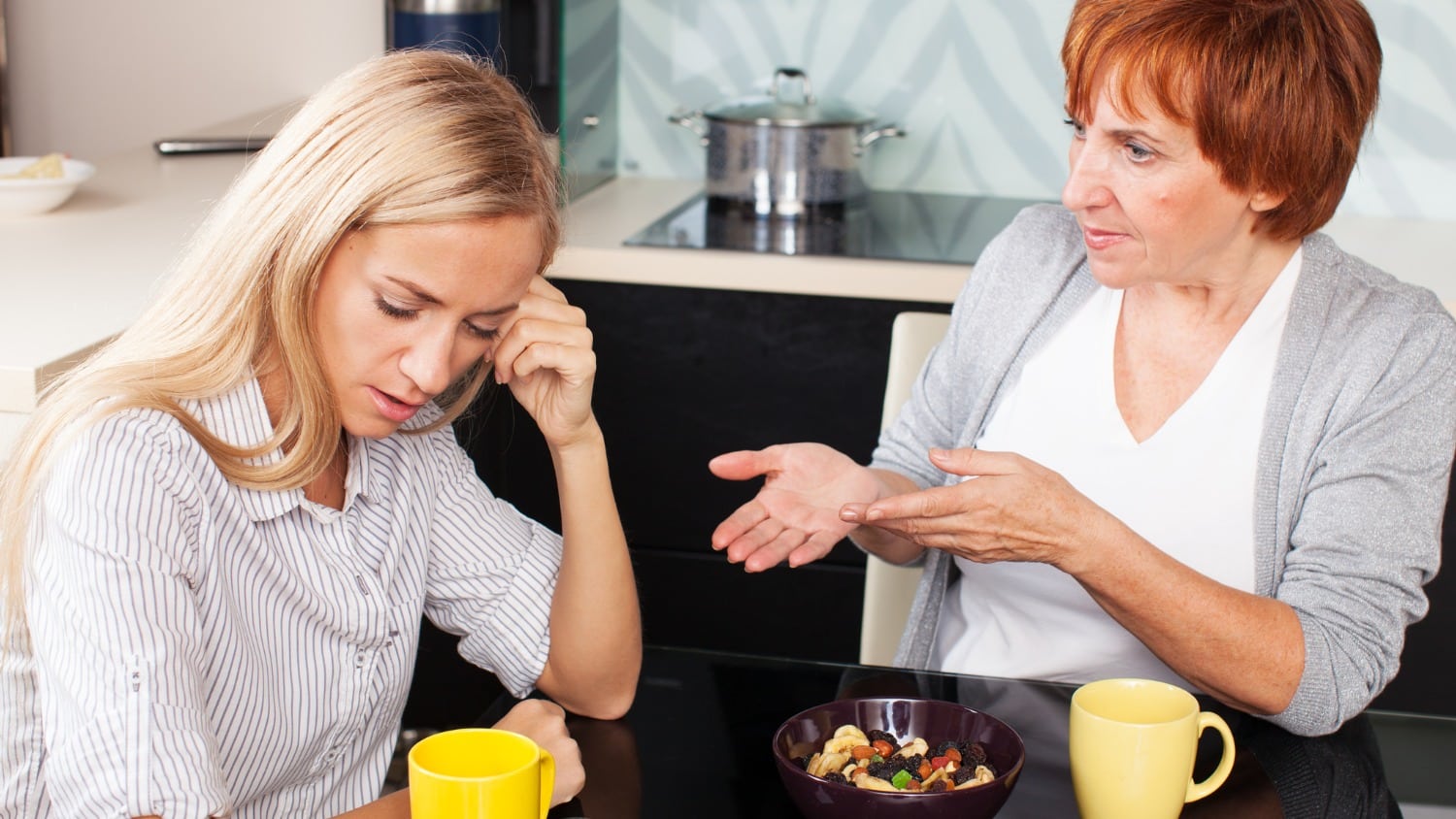What Kinds of Parents Are Less Likely to Be Estranged?
Parenting is a complex and rewarding journey that comes with its own set of challenges. As parents age, they may wonder what kind of parents are not at risk for estrangement from their adult children. While every family and every relationship is unique, certain traits of healthy parent-child relationships can help prevent estrangement from happening.
Traits of Healthy Parent-Child Relationships
These include open communication, mutual respect, healthy boundaries, and self-reflection. It’s important to acknowledge that no parent is perfect, and we all make mistakes. What’s important is how we respond to those mistakes and work to improve our relationships with our adult children. This article identifies what kinds of parents are typically at a lower risk for parent-adult-child estrangement.
Communication
Effective communication is one of the essential traits of healthy parent-child relationships. When parents engage in open and respectful communication with their adult children, they can better understand their child’s perspective and communicate their thoughts and feelings.
It’s important for parents to actively listen to their children, speak kindly and empathetically, and avoid belittling remarks or criticism.
Support
Parents who support their children’s choices and provide emotional and practical support will likely have positive relationships with them. Support means being there for them during tough times, celebrating their achievements, and respecting their decisions, even if you don’t always agree with them.
Boundaries
Healthy boundaries are essential in maintaining solid parent-child relationships. Parents who respect their child’s independence, avoid over-involvement or control, and allow them to make their own decisions will likely have good relationships. At the same time, parents must set boundaries for themselves and communicate them clearly to their children.
Self-Reflection
Parents willing to self-reflect on their behaviors and seek help when needed are more likely to have successful relationships with their adult children. Self-reflecting means taking responsibility for mistakes, apologizing when necessary, and being open to feedback and criticism.
But I Was a Great Parent! Why Me?
It’s important to note that even parents who have exhibited these traits may still experience estrangement from their adult children. However, these characteristics can help reduce the likelihood of it occurring. There is no such thing as “perfect parenting,” and just because mistakes were made does not mean that your parenting warranted estrangement.
While certain behaviors and situations may increase the likelihood of estrangement, ultimately, what warrants estrangement is a personal decision that depends on each family’s circumstances. For some, it may be a significant breach of trust or an ongoing pattern of abusive behavior. For others, it may be a disagreement about a particular issue that is deeply important to them.
Each person’s experience and perspective are valid, and what one person may find unacceptable, another may be able to work through.
When Good Parents Get Kicked to the Curb
Many of my writings address parents’ need to address the concerns of their estranged adult children. Research reports that adult children hope for their parents to take responsibility for their harmful behaviors. Many adult children desire a relationship, but only if their parents have changed.
The is a multitude of reasons and great complexity of variables that participate in the ambiguity and painfulness of the estrangement condition. The breakdown of familial ties is deeply heartbreaking since the support of relatives has the potential to be so nourishing.
But what about parents who were imperfect but did the best they could? Parents who provided emotional and practical support and were still cut off? In fact, some parents qualify as being highly stressful for their adult children and yet their kids still come see them and hold their hands in times of need.
Sadly, some parents have been unjustly accused of behaviors that did not occur. Sometimes, adult children receive therapy, air their hardships and grievances, and blame their parents of offenses. Hearing only one side, the therapist might encourage cutting off so that the adult child experiences less distress.
In some instances, adult children with histories of mental illness, which can include addictions, blame their imperfect parents and decide to cut ties. While it is unwise to generalize, it is reasonable to recognize that not every parent has warranted being harshly treated.
Just as some parents invalidate and refuse to accept their adult child’s version of their pain, some adult children have treated their parents brutally.
Conclusion
As parents, maintaining positive and loving connections with your adult child is what we all hope for. Maintaining these relationships even while they are creating their own families can seem challenging. With open communication, mutual respect, healthy boundaries, and self-reflection, you can help prevent estrangement and maintain a strong relationship with your child for years.
Suppose you are struggling with estrangement or communication issues with your adult child. In that case, it may be helpful to seek the assistance of a therapist or counselor specializing in family relationships. Building healthy relationships takes time and effort, but there is always time to start.
Let’s Have a Conversation:
If you are estranged from your adult child, was it your decision or theirs? Have therapists encouraged you or your adult child to cut ties with each other? Have you considered yourself a good parent?
Tags Estrangement







I think all of the suggestions in your article are good advice, but it’s rather simplistic and re-enforces the belief that estrangement is a consequence of flawed parenting- which i think is rather damaging.
As a child I was physically neglected, sexually abused and most harmfully psychologically abused. I adored my abusive mother. As well as being my tormenter, she was my only source of love and attachment. I suspect now that my mother had some form of personality disorder. All her behaviour was design to make me more compliant, more desperate for her approval and love, more anxious to protect her. I actually viewed her as the vulnerable victim. I am university educated, I am not lacking in resources. to the outside world my mother must have seen like a wonderful mum, with such devoted children.
It is not always good parenting, that results in strong bonds between children and mothers. Those bonds can actually result from early and persistent abuse.
I have since experienced parental alienation, I was abandoned and rejected in favour of a permissive, disengaged from his responsibilities as a parent and ultimately damaging parent. My eldest daughter who remains totally estranged, has now developed borderline personality disorder. Her father has both parentified and spousified my child since her early teens. One of his girlfriends even suggested that my daughter wanted to have sex with her dad!! Clearly a rather stulted understanding of whst she’d recognised to be an unnatural parent-child relationship.
To the outside world this father appears to be a selfless, marytr of a single dad, obviously adored by his daughter. What a lovely sucessful parent he is !!
Relationship are not always as sucessful and nurturing as they may appear. I don’t think you send the right message if you don’t acknowledge that their are very bad parents, harmful parents that achieve very strong bonds with their children.
Don’t beat us over the head because we don’t have strong bonds with our children – it’s sometimes the better parents that become estranged from their children.
I read this article yesterday before any comments. My daughter and her husband fired us, if you will, and we have no idea why except that it is very “happening” now. It is very cool to blame the parents for anything and everything.
I have self reflected, been in therapy, read books on estrangement and once again self reflected and I am certainly NOT in denial.
I have accepted that my daughter has fired me and my husband, but to take our granddaughters away from us and our love is hurtful and and using them as hostages.
Maybe therapists need to encourage patients to quit the blame and accept responsibility for their own actions, to be grateful, to be positive and to COMMUNICATE.
uuuugghhhhh…. it is just devastating to all concerned
Honestly Dianne I think that the issue of children’s rights and needs, plus edicts about what constitutes “good parenting”, have swung from one extreme to the other.
Frankly we’re much too invested in trying to be perfect parents. I think as a society we’re raising children with a sense of entitlement, lack of empathy and narcissistic traits.
And I think the pendulum has swung from widespread disrespect of and general lack of concern for children’s basic emotional needs to the other extreme of over- indulgence and cosseted childhoods.
And I think the “professionals” are significantly culpable for this unhealthy state of affairs in families and wider society. The child is not always right – be they young or adults and continuously pandering to their needs is as harmful as abuse.
Stop trying to understand why it happened – whether your child has reason or not to complain about your behaviour- their method of expressing discontent is inexcusable, selfish and emotionally retarded. You’re just as likely to have tried too hard, as to have done something wrong.
You must let her go and learn to live rewarding, fulfilling lives. The alternative is a life of continuous emotional agony which serves no purpose and achieves nothing.
I’m about 6 years down the line from where you’re at. I’ve lost 6 years of my life, my health has suffered, my finances have suffered, my other relationships have suffered.
Give it up, get help and move on. What you’re child chooses to do about your relationship in the future is out of your control.
Know that there are a lot of us about Dianne. You’re far from alone in this.
Best of luck. Carol